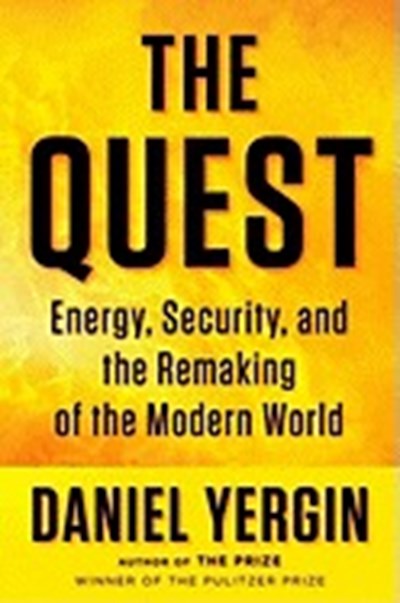Most Recent Articles
-

Blog / Staff Picks
To Lead is to Teach
Book Review by Sally Haldorson
Back in January, we were sent a manuscript for a new book in the Notes On Series created by Russell Reich. Jack wrote a JCS on the first book in the series, Notes on Directing, and has been enthusiastically following Reich and his impressive accomplishments ever since. When Jack received this new manuscript for Notes on Teaching, written by Shellee Hendricks and Reich, he forwarded it on to me.
Categories: staff-picks
-

Blog / News & Opinion
Psychotic Psummer!
By 800-CEO-READ
Last night, I watched the film version of author Brett Easton Ellis' American Psycho. While the film has many limitations compared to the book, the gist of the story remains: Powerful people in powerful positions can have powerful problems. Those of you that might have stomached Ellis' book (it published in 1991, and I felt sort of awful for a week after reading it), might be thinking the story is indicative of a work of fiction.
Categories: news-opinion
-

Blog / Staff Picks
Stranger to Fiction
Book Review by Porchlight
I read something in the industry newsletter Shelf Awareness recently that took me aback. It was from an interview Philip Roth did with Jan Dalley of the Financial Times. The conversation I’d longed to have with him since I first read him many decades ago, a conversation about fiction itself, died an early death.
Categories: staff-picks
-

Blog / News & Opinion
ChangeThis: Issue 84
By 800-CEO-READ
What If They Listened to Entrepreneurs? by Henry R. Nothhaft “Before any significant and sustained increase in the creation of good middle-class jobs can take place, the voice of the entrepreneur who is the source of all breakthrough innovation and job growth must be heard.
Categories: news-opinion
-

Blog / ChangeThis
Your CQ: Why It Might Be the Most Important Number You Don't Know!
By David Livermore
"Everything has gone global. Communication. Work. Politics. Relationships. Faith. We get it. In fact, by this point, the statement almost sounds a bit trite. Any organization knows that the word "global" better find its way into its messaging and strategy. But how do we move beyond mantras about cultural sensitivity and global awareness to successfully adapting to various cultures while simultaneously remaining true to ourselves? Both sides of the equation are essential—being true to ourselves and adapting to different cultures. And being true to our organizational identity and brand while also responding to an onslaught of culturally diverse markets."
Categories: changethis
-

Blog / ChangeThis
It's All About Them: Marketing to the Digitally Empowered Buyer
By Rebel Brown
"Thanks to the digital age, today's buyers can research, select and purchase their products without getting you involved in the decision. You won't even know they were buying. Everything shifted. Your choices: shift, too—or get left in the past. We all know that people buy because of their perceptions. Today's perceptions are created through the Internet and word of mouth. You no longer have tight control over the way your market sees your business, the information that is available about you or the buzz about your brand. Marketing, the way we've always done it, doesn't work anymore."
Categories: changethis
-

Blog / ChangeThis
We First: How Consumers and Brands Can Partner to Build a Better World
By Simon Mainwaring
"We First capitalism posits that we can no longer accept the myopic, short-term, profit-for-profit's sake practice of capitalism we invite corporations and consumers to engage in today. Allowing every individual, every investor, every corporation, and every nation to think solely about its own self-interests and its own profits is not the solution to creating a more peaceful, prosperous, and equitable world. The transformation from Me First to We First is no longer an option, because we now live in an interconnected, complex, globalized world of 7 billion people, all of whom need a portion of the resources and the prosperity that the Earth provides. Capitalism can no longer be an elite economic system whose results fund a limited group of people, leaving billions of others living without opportunity or hope. Our connections to each other are growing ever tighter, such that the actions of a single individual, bank, corporation, or nation can have an immediate and deleterious impact on millions of other people.
Categories: changethis
-

Blog / ChangeThis
Brains, Bones, and Nerves: The Only Three Things an Enterprise Leader Should Focus On
By Rajeev Peshawaria
"The key is to control and shape the three most important levers of sustainable business growth—the Brains, the Bones, and the Nerves. The brains of a business are its vision and strategy, and here the enterprise leader must shape and set direction. The bones are the organizational architecture, and here the enterprise leader must design the organization in order to execute the strategy. The nerves refer to the culture and climate of the organization, and here the enterprise leader must foster a culture of longlasting excellence. Just as the human body needs all three systems—the brain, bones, and nerves—functioning in perfect harmony to maximize longevity and performance, a business needs its strategy, architecture, and culture to work in harmony in order to maximize results. As an enterprise leader, you should focus on these three as your most important focus areas; everything else must be delegated."
Categories: changethis
-

Blog / ChangeThis
TouchPoints: Why the Interruptions That Drive Us Crazy Just Might Be the Most Productive Opportunities We Have Every Day
By Douglas Conant, Mette Norgaard
"Some days it feels like the information age has morphed into the interruption age. But what if those interruptions turned out to be our best opportunity to make a difference in our workplaces. As leaders, we make choices all day, every day. The "knock on the door" happens over and over again in some form – phone calls, meetings, emails, and text messages with questions to answer, concerns to address, problems to solve, and fires to put out. There are big issues and small issues, planned sessions and surprises, and they come at us endlessly and from every direction. We have to make decisions without having all the available information, and we need to make them right now. The workload is expanding, and the time we have to deal with each issue is shrinking. But what if we could step back and look at all those interactions with a fresh perspective. What if, instead of seeing them as interfering with our work, we were to look at them as latent leadership moments. What if these moments were the answer to transformational leadership in today's busy world.
Categories: changethis
-

Blog / ChangeThis
What If They Listened to Entrepreneurs?
By Henry R. Nothhaft
"Before any significant and sustained increase in the creation of good middle-class jobs can take place, the voice of the entrepreneur who is the source of all breakthrough innovation and job growth must be heard. Sadly, however, entrepreneurs are just about the only Americans without a voice in Washington. Big Business certainly has a voice. So does labor, as do teachers, retailers, insurers, doctors, environmentalists and just about every interest group you can think of. Only entrepreneurs lack an effective organized voice. This despite the fact that, as the distinguished economist Jonathan Hughes once put it, entrepreneurs are 'the vital few' upon whom all of society depends for economic progress."
Categories: changethis


